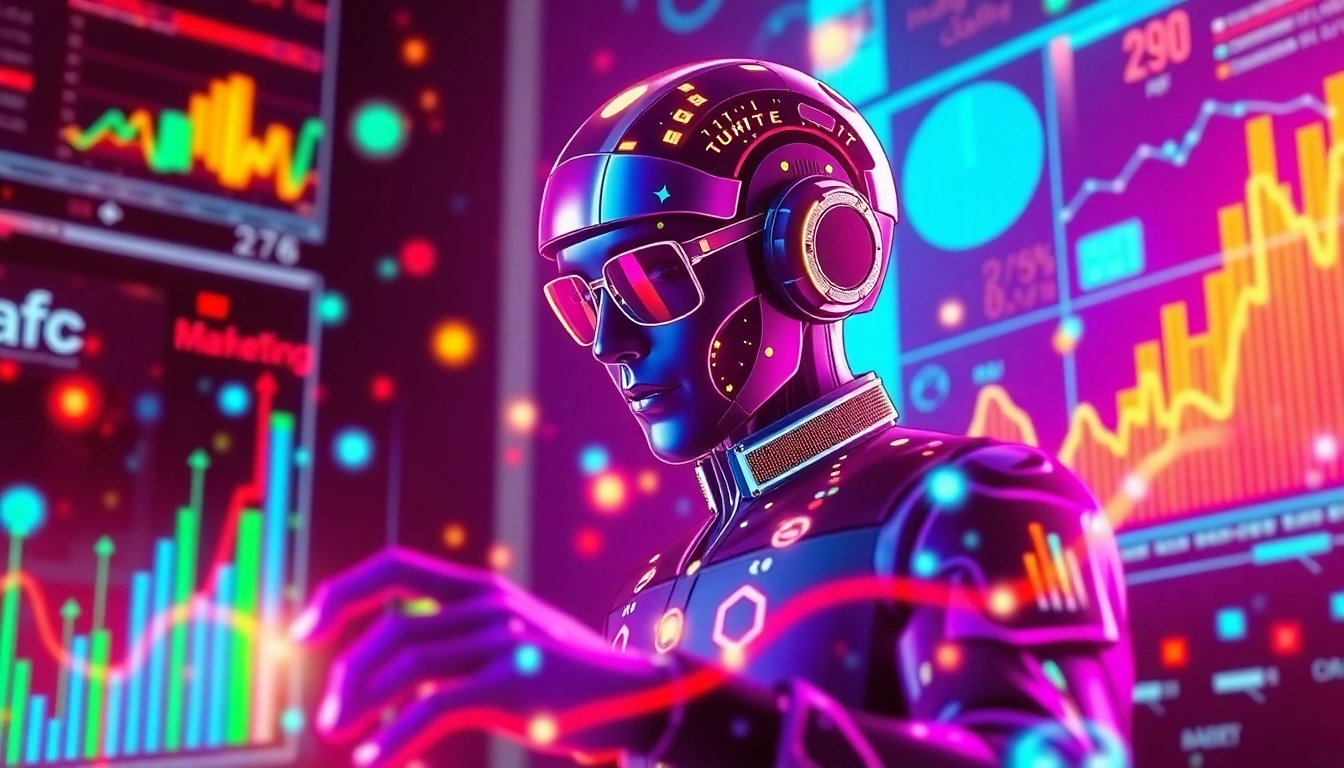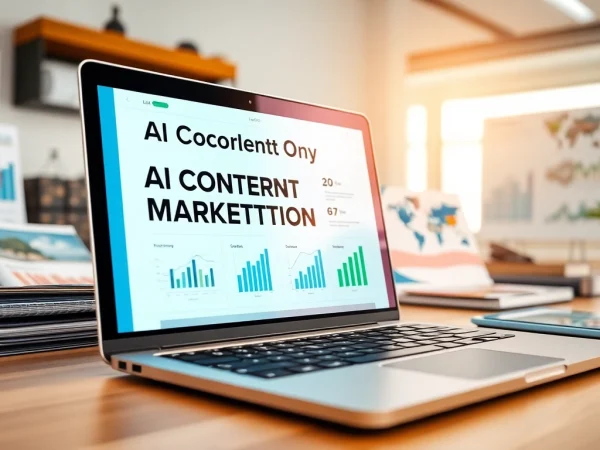Elevate Your Marketing Strategy with AI Marketing Agents
Understanding AI Marketing Agents
The rise of artificial intelligence (AI) has ushered in a new era of marketing capabilities. AI marketing agents represent one of the most innovative advancements in this field. These autonomous software programs are designed to perform various marketing tasks by utilizing sophisticated algorithms and data analysis techniques, which enables them to engage with consumers and optimize marketing strategies effectively. In this exploration, we will delve into the definition, functionality, benefits, and more of AI marketing agents.
Definition and Functionality
AI marketing agents are software solutions that can perform marketing tasks, often autonomously or semi-autonomously. Their functionality encompasses a wide range of tasks, including customer segmentation, content creation, email marketing automation, and social media engagement. Essentially, these agents leverage data to make informed decisions and execute marketing strategies with greater efficiency than traditional methods. They work through a combination of machine learning, natural language processing, and data analytics, allowing them to adapt to changing market conditions and consumer behaviors.
The Technology Behind AI Agents
The technology that powers AI marketing agents comprises several components. First, machine learning algorithms are employed to analyze and interpret large data sets. These algorithms learn from past data, allowing the agents to make predictions about customer behavior, preferences, and engagement patterns.
Secondly, natural language processing (NLP) enables AI agents to understand and generate human-like text, making it possible for them to engage in conversations, create personalized emails, and interact with customers on social media. Lastly, integration with various digital marketing platforms ensures that these agents can deploy campaigns across multiple channels, collect performance data, and optimize ongoing efforts in real-time.
Benefits of Incorporating AI in Marketing
The adoption of AI marketing agents offers numerous advantages:
- Increased Efficiency: By automating repetitive tasks such as data entry and report generation, AI agents free up human marketers to focus on strategic initiatives.
- Enhanced Personalization: AI agents can analyze vast amounts of consumer data to create highly personalized marketing messages that resonate with individual preferences.
- Data-Driven Insights: These agents constantly collect and analyze performance data, providing real-time insights that help marketers adjust their strategies swiftly.
- Cost-Effectiveness: Automating processes can significantly reduce marketing costs in the long-term by minimizing human errors and improving campaign outcomes.
- Scalability: AI agents can handle large volumes of data and customer interactions, making it easier for businesses to scale their marketing efforts without exponentially increasing staffing costs.
Types of AI Marketing Agents
Understanding the types of AI marketing agents available can help organizations choose the right tools for their specific needs. Different agents are suited for various tasks related to marketing, each with its unique capabilities.
Automated Engagement Agents
Automated engagement agents are designed to handle customer interactions through chatbots and other communication tools. They can answer frequently asked questions, resolve customer issues, and engage visitors on websites or social media platforms. By providing instant support, these agents improve customer satisfaction and retention rates.
Data Analysis and Insights Agents
These agents focus on analyzing data to provide actionable insights for marketing strategies. They can sift through customer data, market trends, and campaign performance metrics to help marketers identify opportunities and weaknesses in their strategies. By employing predictive analytics, these agents can forecast future customer behavior and trends.
Personalization and Targeting Agents
Personalization agents take customer data and create tailored marketing messages and content based on individual preferences. By leveraging behavioral data, purchase history, and demographic information, these agents ensure that marketing efforts resonate with the intended audience, enhancing engagement and conversion rates.
Best Practices for Implementing AI Marketing Agents
Successful implementation of AI marketing agents requires thoughtful planning and strategy. Here are some best practices to ensure effective deployment:
Identifying Your Marketing Needs
Before adopting AI marketing agents, businesses must identify specific marketing needs. Understanding target audience, the objectives of the marketing strategy, and current challenges will help in selecting the appropriate AI tools. A thorough assessment of existing capabilities will provide clarity on where AI can effectively enhance current marketing efforts.
Choosing the Right AI Tools
Not all AI marketing agents are created equal, so choosing the right tools is crucial. Evaluate different options based on specific requirements, such as the agent’s functionality, ease of integration with existing systems, and scalability. This may involve comparing features, pricing, and customer reviews to ensure that the selected tool aligns with the organization’s goals.
Integrating Agents with Existing Systems
Once the appropriate AI tools have been selected, the next step is to integrate them with current systems. This process demands attention to ensure a smooth transition and functionality. Integration with customer relationship management systems (CRMs), content management systems (CMS), and data analytics platforms can enhance the effectiveness of AI marketing agents and ensure a cohesive approach to marketing campaigns.
Case Studies: AI Marketing Success Stories
Real-world examples illustrate the transformative impact AI marketing agents can have on businesses, regardless of their size. Here is a glimpse into how various organizations have implemented AI technologies successfully.
Large Enterprises Using AI Effectively
Large enterprises like Coca-Cola have harnessed AI to innovate their marketing strategies. By utilizing AI to analyze social media conversations, they gain insights into consumer preferences and sentiment, allowing them to create targeted campaigns that resonate with their audience. Moreover, their use of automated engagement tools has enabled them to enhance customer interaction on digital platforms, driving brand loyalty and customer satisfaction.
Small Businesses Achieving Growth
Small businesses, too, have successfully adopted AI marketing agents. For instance, a local e-commerce brand implemented an AI-driven personalization engine that analyzes user behavior on their website. As a result, they could create personalized product recommendations leading to a 20% increase in conversion rates. This illustrates how small businesses can leverage AI tools to compete effectively against larger competitors.
Lessons Learned from Implementation
Organizations that have successfully implemented AI marketing agents often share similar insights. Key lessons include the importance of clear objectives, the need for continuous monitoring and optimization, and the value of cross-functional collaboration between marketing, IT, and sales teams. Engaging stakeholders throughout the implementation phase can drive better alignment and improve overall success.
Future Trends in AI Marketing Agents
The landscape of AI marketing is continually evolving, shaped by emerging technologies and industry trends. Here, we explore anticipated future trends and their potential impact on marketing.
Emerging Technologies and Innovations
As AI technology advances, we can expect the introduction of more sophisticated AI marketing agents capable of conducting complex tasks. Innovations in deep learning, for example, will allow agents to better understand and predict consumer behavior, resulting in even greater levels of personalization. Moreover, the integration of AI with augmented reality and virtual reality systems opens new avenues for immersive marketing experiences.
The Evolving Role of AI in Marketing
AI’s role in marketing is expected to evolve significantly in the coming years. Beyond customer engagement and data analysis, AI will likely play a pivotal role in predictive modeling, allowing businesses to anticipate market trends and adjust strategies proactively. Furthermore, AI ethics and transparency will become critical as consumers demand greater accountability from brands that use AI technologies.
Predictions for the Next Decade
Looking ahead, the next decade will likely see AI marketing agents becoming ubiquitous across industries. Organizations will increasingly rely on these agents to optimize their entire marketing ecosystem, from content creation to performance measurement. As AI continues to adapt and learn from user interactions, companies that embrace this transformation will likely gain a competitive advantage in an ever-evolving marketplace.
Conclusion
AI marketing agents represent a groundbreaking development in the marketing landscape, offering solutions that enhance efficiency, personalize customer experiences, and provide valuable data insights. By understanding their functionality, types, and best practices for implementation, businesses can harness the power of AI to elevate their marketing strategies. As technology continues to evolve, adapting to these changes will be crucial for long-term success.










